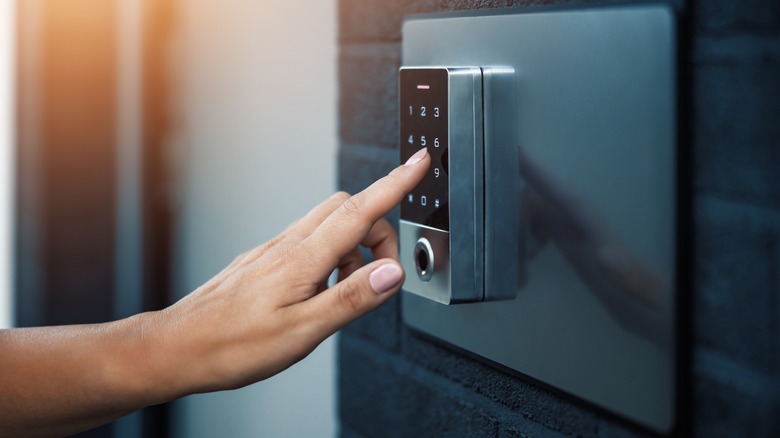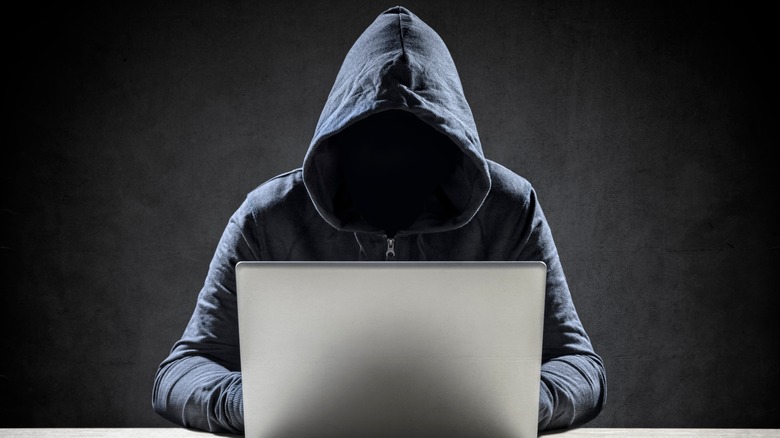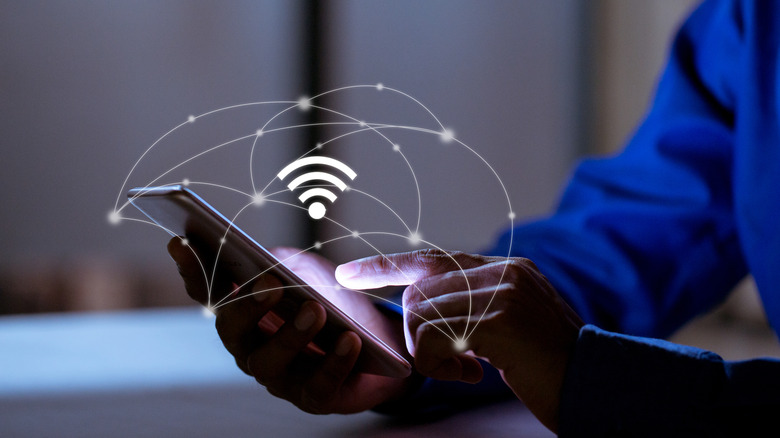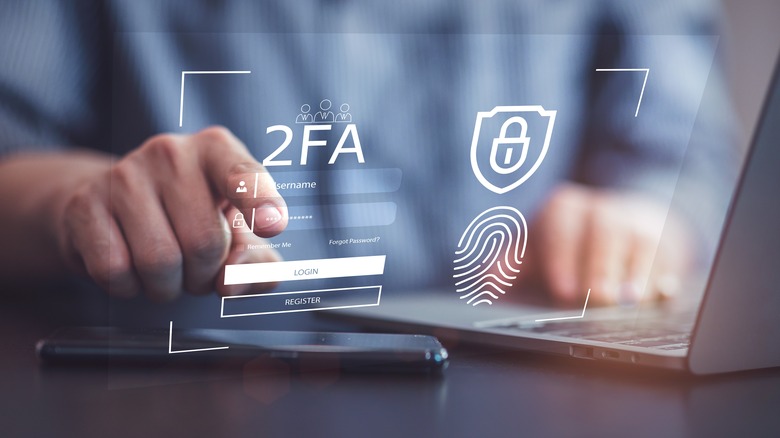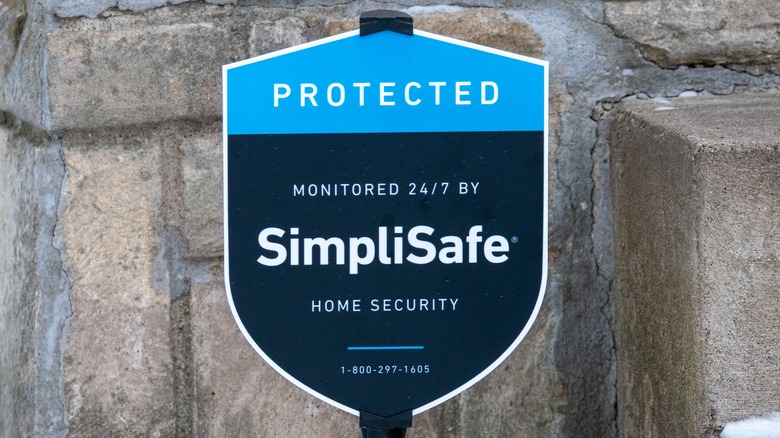The Best Ways To Prevent Your Smart Home Locks From Being Hacked
In an era where digital convenience is paramount, smart home locks offer unparalleled security and control. However, they are not exempt from potential cyber threats. Like any other combination of software and hardware, bad actors can hack smart home locks, compromising your digital privacy and home security.
Strong, unique passwords form the bedrock of your smart home lock security. A carefully crafted Wi-Fi password, blending alphanumeric and special characters, can thwart most cyber-attacks. Just as important are regular updates, which manufacturers roll out to mend vulnerabilities and enhance device security.
The security of smart home locks, and any other software, is significantly bolstered by two-factor authentication (2FA), where a second form of identification becomes indispensable. Ensuring your network's security is also vital, as your lock operates over Wi-Fi.
Lastly, it's important to emphasize the necessity of choosing smart home locks from reputable manufacturers known for their commitment to security and encryption standards. Choosing wisely here could mean the difference between a secure home and a vulnerable one.
Why it's essential to maintain security with smart home locks
Smart home locks are one of the main entry points into people's digital and physical lives. They are a pathway to homes and a gateway to personal data. While they offer incredible convenience, it's crucial to remember that these devices, like any others connected to the internet, can become targets for nefarious individuals or groups.
Cybercriminals and their cohorts are making a living finding new ways to exploit vulnerabilities in internet-connected devices. Smart home locks are no exception. With the right skills and knowledge of Wi-Fi encryption, these bad actors can hack into these locks, posing serious security threats. This process could allow individuals to get into your home or view and download your personal information, depending on the data your lock stores and transmits.
The threat isn't merely theoretical. There have been instances of bad actors hacking locks in controlled security tests and real-world scenarios. These breaches can lead to significant violations of privacy and safety. For example, in 2016 and 2017, hackers subjected an Austrian hotel to a ransomware attack. This situation impacted guests' access to their rooms, and the hotel ended up paying to regain access to their system.
How to bolster your Wi-Fi's security to prevent your smart home lock from being hacked
It's crucial to remember that your smart home lock's security and your Wi-Fi network's security are intrinsically linked. By penetrating your Wi-Fi, malicious actors can potentially gain control over your smart lock and, by extension, your home. A robust Wi-Fi network is your first bulwark against cyber threats. For starters, opting for a WPA3-enabled router would be best. This technology employs the latest Wi-Fi Protected Access protocol for maximum protection and can significantly reduce the risk of network compromise.
Changing your router's default login credentials can thwart hackers who often attempt to access networks using factory-set usernames and passwords. A unique, complex password for your router can create a substantial barrier for potential intruders.
In addition, consider setting up a separate Wi-Fi network solely for your smart devices. This segregation isolates your smart home lock and other devices from your primary network, reducing the risk of a breach spreading across networks.
Regularly updating your router's firmware is another critical measure. Manufacturers often release updates to address security flaws, and staying current ensures you benefit from these enhancements. Lastly, disabling your router's remote management can prevent hackers from altering your router's settings from an external location.
How to use two-factor authentication (2FA) to prevent your smart home lock from being hacked
One of the best ways to secure your smart home lock is through two-factor authentication (2FA), which adds an extra security layer to your digital assets. 2FA uses an additional method of verification in addition to your password. Even if hackers crack your password, they need the second verification component to access your smart home lock's app. This process makes unauthorized access considerably more challenging.
Your smart home lock systems will send you a unique code via text message to your mobile device or a notification through your lock's dedicated authentication app. In some cases, it is a physical security key.
Activating 2FA is typically a straightforward process, and it generally involves accessing the security settings in your smart lock's app and following the prompts to enable 2FA. This process can vary slightly depending on the smart home lock brand and model, so it's wise to consult the manufacturer's instructions or website.
How to choose a smart home lock from a reputable manufacturer
Navigating the world of smart home locks can be challenging due to the various choices available. One crucial decision is choosing an option from a reputable manufacturer. Brands like Schlage, Yale, and SimpliSafe have earned their reputation through their commitment to security and quality.
When selecting a smart home lock, there are vital features to consider. First, evaluate the lock's security features. Look for options that employ robust encryption methods to protect your data and offer two-factor authentication (2FA) for added security.
Next, consider the manufacturer's track record for software updates. Regular firmware and software updates are critical for maintaining security over time, and companies prioritizing timely updates indicate a proactive approach to safety. Also, consider the device's compatibility with other smart home systems. Choosing a lock that works well with your existing smart home ecosystem is beneficial for seamless integration, whether it's Google Home, Amazon Alexa, or Apple HomeKit.
Customer support is another crucial factor. Choose a company that provides quality customer service to ensure you'll receive help if any issues arise. Lastly, read reviews and research; customer feedback can provide valuable insights into the lock's reliability and performance.
